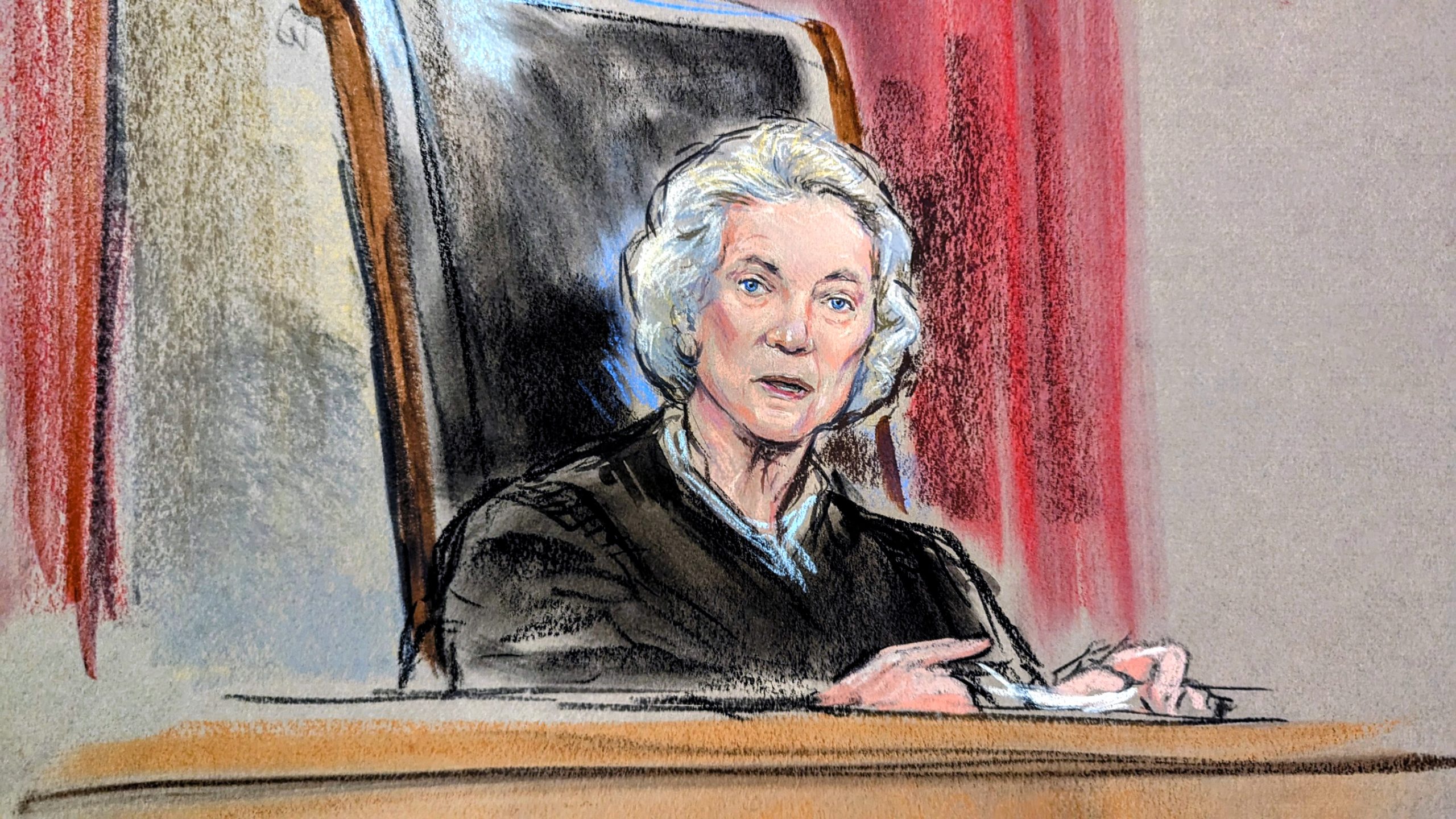
A justice stewarding a Constitution
 By Sambhav Sankar
By Sambhav Sankar on Dec 12, 2023 at 6:32 pm
 Justice Sandra Day O'Connor on the bench in 2005. (William Hennessy) Share
Justice Sandra Day O'Connor on the bench in 2005. (William Hennessy) ShareThis tribute is part of a series on the life and work of the late Justice Sandra Day O’Connor.
Sambhav Sankar clerked for O’Connor during the 2003-04 term. He is now the Senior Vice President for Programs at Earthjustice. All views are his own.
Justice Sandra Day O’Connor had a profoundly practical approach to the law: Decisions mattered because of their impact on people. Frustrating colleagues who advanced their policy views through legal subterfuge, Justice O’Connor named the factors she thought relevant to a decision and weighed them out in the open. In reading the Constitution, she parsed its ambiguities and gaps in ways that she believed, based on her own experience, would be best for the nation. (The originalists were doing the same thing. She was just honest about it.)
One of the highest-profile cases decided during my clerkship with her was Elk Grove Unified School District v. Newdow, which considered the constitutionality of the Pledge of Allegiance. The court had already held in West Virginia State Board of Education v. Barnette that children cannot be compelled to recite the Pledge if doing so would violate their religious beliefs, but Michael Newdow argued that its mere existence violated the First Amendment.
Under the establishment clause as it was then understood, the government cannot act in a way intended to endorse or disapprove of religion (or a particular religion), or that would lead a reasonable observer to think it had done so. Newdow observed that Congress had only added the words “under God” to the Pledge in 1954, and that it had done so to explicitly define America as a religious country, in contrast to its communist rivals. Newdow contended that this was a prima facie violation of the “endorsement test.”
When applying such tests, judges naturally rely heavily on the most reasonable observer they know: themselves. Justice O’Connor was no exception, and because of her position at the center of the Rehnquist Court, her judgment often determined the outcome of establishment clause cases while she was on the bench.
Newdow had an uphill battle to convince her. Kids had been pledging allegiance to a country “under God” every day for decades, but America was hardly a theocracy. And almost no one had challenged the Pledge in court since its modification. In Justice O’Connor’s America, this just wasn’t a big deal.
Going into oral argument, I was pretty sure that the justice would vote to uphold the Pledge. But Newdow (who argued his own case despite having minimal legal training) did an unexpectedly masterful job at the lectern. So when the justice asked her clerks over lunch what we thought of the argument, I knew it was a very real question. We often discussed cases as a group, but I seldom felt as strongly about them as I did about Newdow. I had been raised in a Hindu family, and the Pledge had always galled me.
I took a deep breath and told the justice that I thought the Pledge violated her own understanding of the endorsement test. She had previously written that a government action involving religion fails that test when it “sends a message to nonadherents [of a given religion] that they are outsiders, not full members of the political community, and an accompanying message to adherents that they are insiders, favored members of the political community[.]” I explained that even as a kid, I knew in my bones that the “God” in the Pledge was the bearded white god of the Christians who had written it, not the garlanded idols in my house. This was their country: school closed for Christmas, not Diwali. The words in the Pledge marked me as an outsider.
Justice O’Connor may have been the lone cowgirl on the court, but she knew she wasn’t an outsider on this issue. And so she listened carefully as I explained how the Pledge might sound to someone who isn’t a Christian, or who affirmatively rejects religion. As we spoke, I saw what made her so special as a justice. She did not have an affirmative legal agenda or governing ideology. And that meant she brought a truly open mind to every case.
Days later, the court conferenced in private to discuss the case. Justice O’Connor returned to report that a majority of the court had determined that Michael Newdow lacked standing to bring his claim. Oh well, I thought. The court wouldn’t strike out the words, but it wouldn’t approve of them, either.
But the justice wasn’t done. She walked over and sat down on the edge of my desk — her preferred perch when issuing detailed instructions. She told me to draft a concurrence outlining her own view that Newdow had standing, and that the Pledge passed constitutional muster. She explained her view that the Pledge is an instance of “ceremonial deism,” a cultural ritual that had lost any religious character through constant repetition in nonreligious contexts. A “reasonable observer,” she explained, would appreciate the nation’s history and evolution, and wouldn’t feel excluded. She had thought deeply about how to identify these kinds of harmless references to religion, and she wanted the concurrence to lay out four factors that other courts ought to consider in doing so. She gave me a small smile and said, “I know you disagree, but I expect you’ll do a good job.”
Actually, I knew she was right. In talking to her, I had been thinking like a lawyer arguing a case. In listening, she had been thinking like a justice stewarding a Constitution. Justice O’Connor knew in her gut that Newdow was a case aimed at vindicating a principle, not building a stronger nation. Striking down the Pledge could set off a culture war that would undermine, not advance, the Constitution’s foundational goals. She wanted no part in that.
The justice at the center of the court often ends up serving as America’s de facto “reasonable person.” When Justice O’Connor occupied that position, the reasonable person was a listener. Oral argument was a conversation. Judgment wasn’t preordained. As I’ve watched the current court’s supermajority build a docket aimed at carrying out an extremist agenda, I’ve missed Justice O’Connor’s wise, intense focus on the broad and reasonable center.
Posted in Death of Justice Sandra Day O'Connor
Recommended Citation: Sambhav Sankar, A justice stewarding a Constitution, SCOTUSblog (Dec. 12, 2023, 6:32 PM), https://www.scotusblog.com/2023/12/a-justice-stewarding-a-constitution/
Introducing Jobbguru: Your Gateway to Career Success
The ultimate job platform is designed to connect job seekers with their dream career opportunities. Whether you're a recent graduate, a seasoned professional, or someone seeking a career change, Jobbguru provides you with the tools and resources to navigate the job market with ease.
Take the next step in your career with Jobbguru:
Don't let the perfect job opportunity pass you by. Join Jobbguru today and unlock a world of career possibilities. Start your journey towards professional success and discover your dream job with Jobbguru.
Originally posted on: https://www.scotusblog.com/2023/12/a-justice-stewarding-a-constitution/